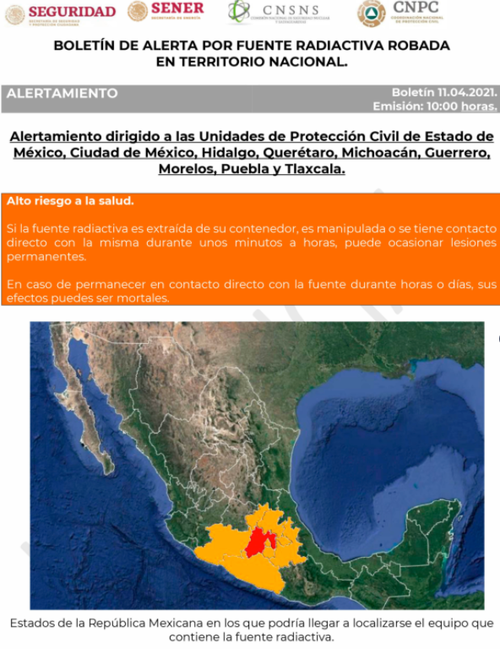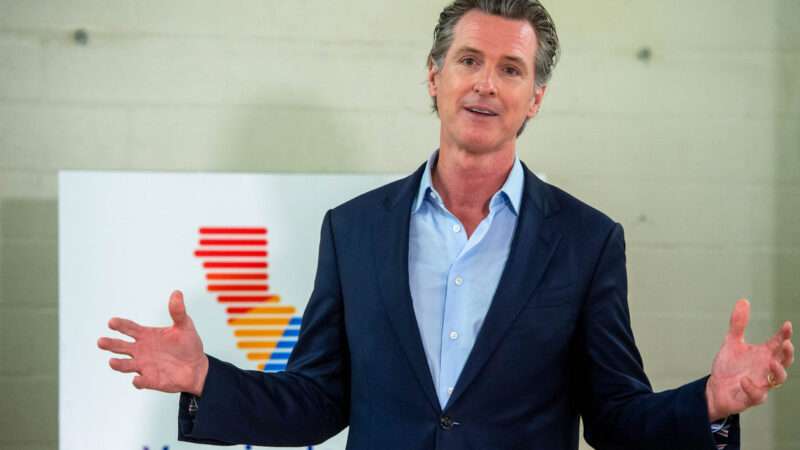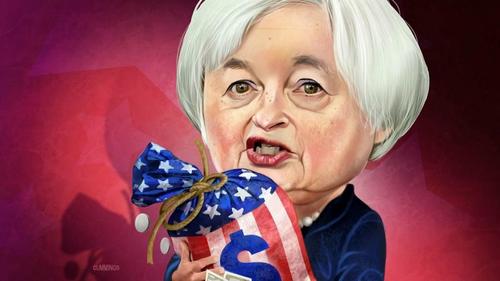The U.S. Supreme Court has blocked enforcement of California’s pandemic-inspired restrictions on at-home religious gatherings, saying the plaintiffs are likely to prevail in their claim that the state’s rules violate the First Amendment. The Court previously had issued emergency injunctions against California’s limits on gatherings in houses of worship, and Friday’s decision confirms that the same principles apply to services in people’s homes.
The rule at issue in Tandon v. Newsom limits private Bible study and prayer meetings to people from no more than three households. In February, a federal judge rejected the plaintiffs’ request for an injunction against that restriction, viewing it as a valid exercise of Gov. Gavin Newsom’s public health powers. The U.S. Court of Appeals for the 9th Circuit last month refused to issue an emergency injunction pending appeal.
“The Ninth Circuit’s failure to grant an injunction pending appeal was erroneous,” the Supreme Court says in a per curiam opinion supported by Justices Clarence Thomas, Samuel Alito, Neil Gorsuch, Brett Kavanaugh, and Amy Coney Barrett. The Court cites four principles that should have been “clear” to the 9th Circuit from prior cases involving COVID-19 restrictions and religious freedom:
1. “Government regulations are not neutral and generally applicable, and therefore trigger strict scrutiny under the Free Exercise Clause, whenever they treat any comparable secular activity more favorably than religious exercise….It is no answer that a State treats some comparable secular businesses or other activities as poorly as or even less favorably than the religious exercise at issue.”
2. “Whether two activities are comparable for purposes of the Free Exercise Clause must be judged against the asserted government interest that justifies the regulation at issue….Comparability is concerned with the risks various activities pose, not the reasons why people gather.”
3. “The government has the burden to establish that the challenged law satisfies strict scrutiny. To do so in this context, it must do more than assert that certain risk factors ‘are always present in worship, or always absent from the other secular activities’ the government may allow….Instead, narrow tailoring requires the government to show that measures less restrictive of the First Amendment activity [such as masks, physical distancing, or less onerous size limits] could not address its interest in reducing the spread of COVID.”
4. “Even if the government withdraws or modifies a COVID restriction in the course of litigation [as California did in this case], that does not necessarily moot the case. And so long as a case is not moot, litigants otherwise entitled to emergency injunctive relief remain entitled to such relief where the applicants ‘remain under a constant threat’ that government officials will use their power to reinstate the challenged restrictions.”
The five justices in the majority express some annoyance that the 9th Circuit has failed to apply these principles. “This is the fifth time the Court has summarily rejected the Ninth Circuit’s analysis of California’s COVID restrictions on religious exercise,” they note.
Chief Justice John Roberts thought an emergency injunction was not appropriate, although he did not explain why. In a dissent joined by Justices Stephen Breyer and Sonia Sotomayor, Justice Elena Kagan argues that California’s rule is neutral and generally applicable, meaning it does not trigger strict scrutiny, because it applies to all private gatherings.
“If the State also limits all secular gatherings in homes to three households, it has complied with the First Amendment,” Kagan writes. “And the State does exactly that: It has adopted a blanket restriction on at-home gatherings of all kinds, religious and secular alike.”
Kagan does not think it is appropriate to consider how the state treats settings such as stores and hair salons. And even if that comparison were relevant, she says, there are sound reasons to believe gatherings in homes pose greater risks of virus transmission than gatherings in such businesses: Homes are apt to be smaller and not as well-ventilated, private gatherings tend to last longer, and people in private settings may be less likely to wear masks and practice physical distancing.
“In ordering California to weaken its restrictions on at-home gatherings, the majority yet again ‘insists on treating unlike cases, not like ones, equivalently,'” Kagan says. “And it once more commands California ‘to ignore its experts’ scientific findings,’ thus impairing ‘the State’s effort to address a public health emergency.'”
The Supreme Court first enjoined COVID-19 restrictions on religious activity last November, after the Roman Catholic Diocese of Brooklyn and Agudath Israel of America challenged New York’s limits on houses of worship. The following month, the Court vacated a district court decision upholding Colorado’s occupancy limits on religious services. In February, the Court issued emergency injunctions against California’s restrictions on religious services in South Bay United Pentecostal Church v. Newsom, Harvest Rock Church v. Newsom, and Gateway City Church v. Newsom. That same month in Gish v. Newsom, it vacated a district court decision upholding California’s rules.
Breyer, Kagan, and Sotomayor dissented in all of those cases, arguing that the challenged regulations did not implicate the First Amendment because they did not actually treat religious conduct differently from secular conduct that was similar in all relevant respects. As Kagan put it on Friday, “the law does not require that the State equally treat apples and watermelons.”
The dissenters obviously disagree with their colleagues about what counts as an apple or a watermelon. But more fundamentally, they always seem inclined to accept the public health judgments embodied in governors’ COVID-19 edicts, even when those judgments seem scientifically dubious, even when they change in the midst of litigation, and even when they result in policies that privilege politically influential industries (such as gambling in Nevada and entertainment in California) or explicitly treat religious gatherings as a disfavored category (as New York’s rules for “houses of worship” did).
It is reasonable to argue, based on the Court’s pre-pandemic precedents, that some COVID-19 regulations are constitutional even if they happen to impinge on religious activity. But at this point it is not clear that Kagan et al. can imagine a disease control policy that would violate the Free Exercise Clause, provided it was presented as necessary for the protection of public health, as such policies always are.

from Latest – Reason.com https://ift.tt/3de6Grj
via IFTTT













